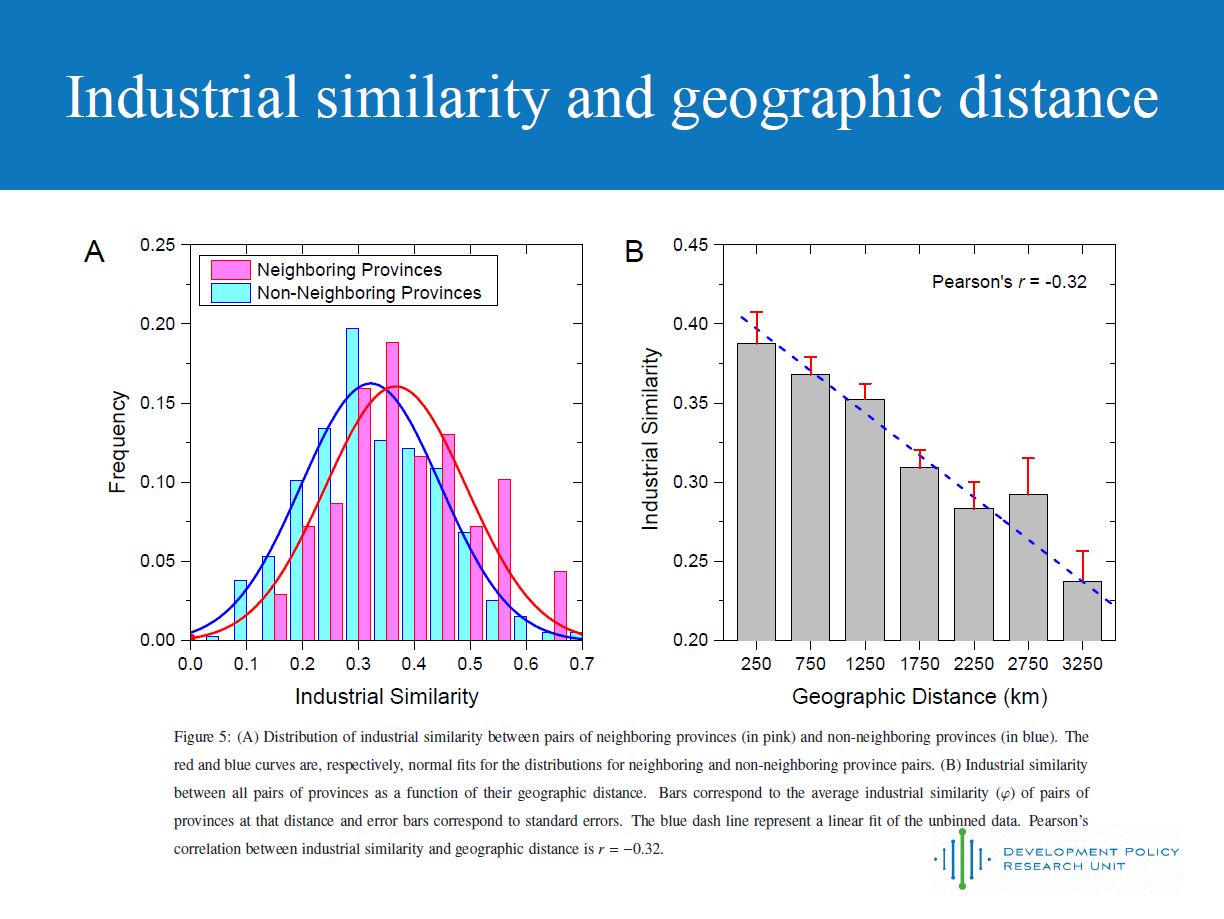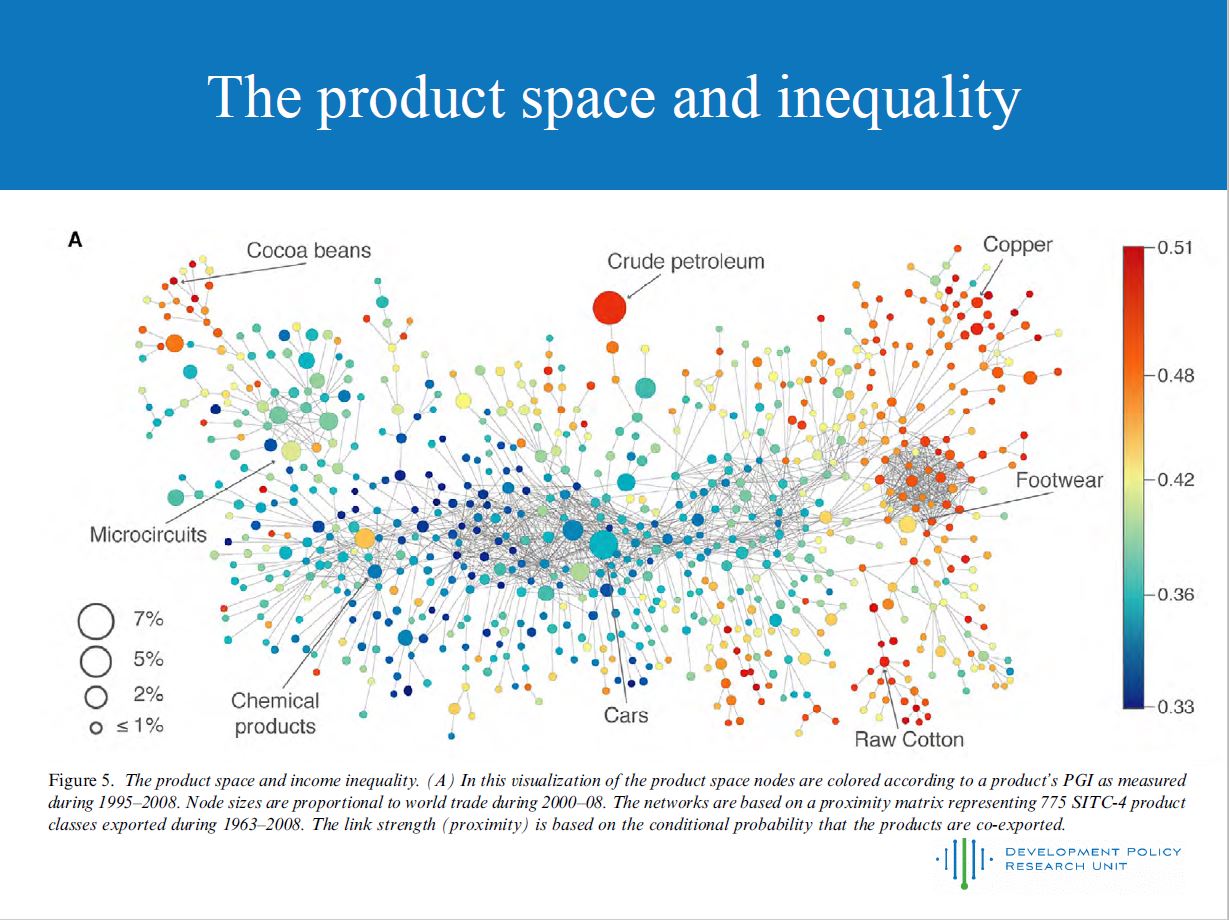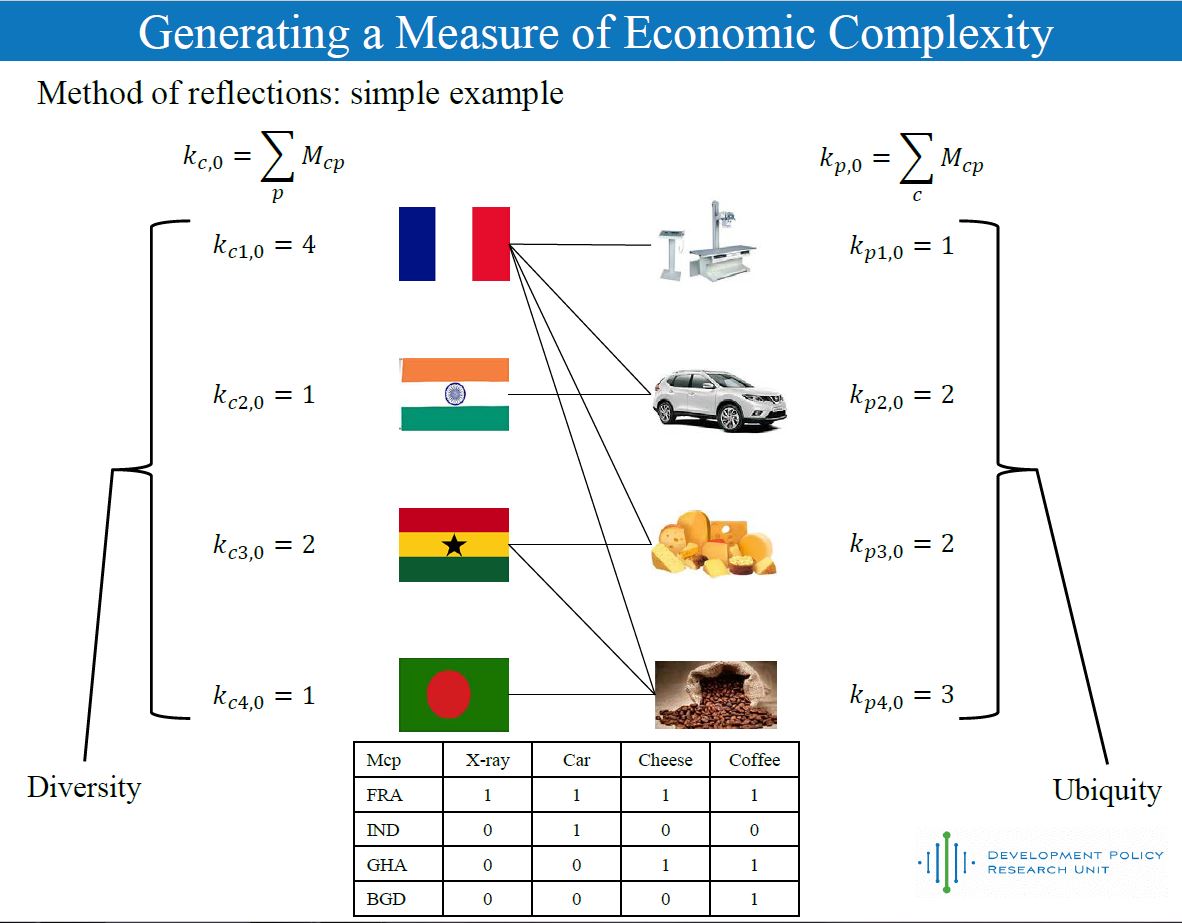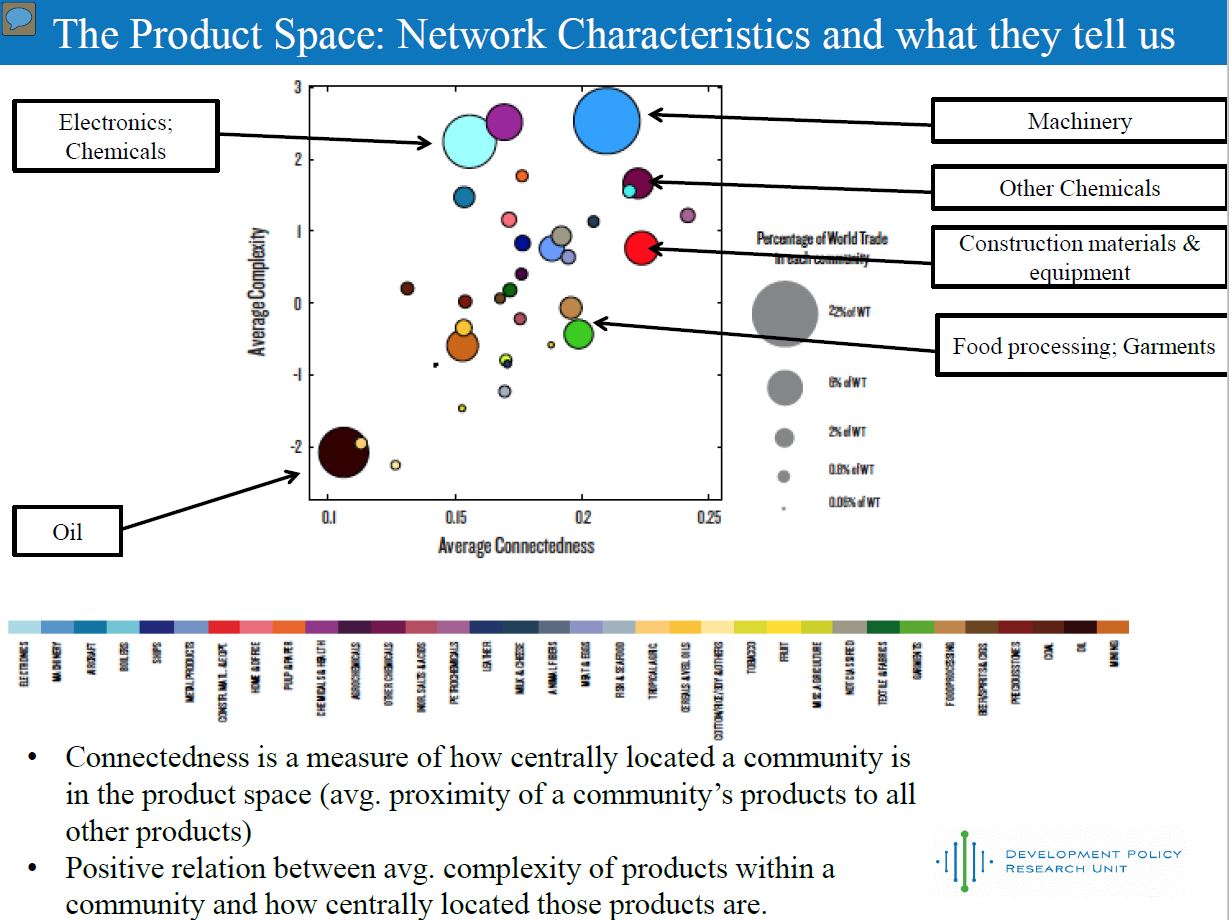Economic Complexity Workshop
The Development Policy Research Unit team conducted a complexity methodology workshop on the 31st of January 2019. The workshop aimed to, firstly: equip researchers doing research using complexity analytics, and secondly: provide a description of the methodology to the engineering teams involved in the broader project - and thus cross-disciplinary research synergies.
On the first day of the workshop, DPRU researchers Christopher Rooney and Robert Hill conducted a presentation on complexity analytics. Christopher provided the introduction, discussed the Product Space, and offered a theoretical description of the economic complexity methodology. Robert provided a discussion of empirical applications of the methodology, with a practical introduction to the Atlas of Economic Complexity.
On the second day of the workshop, the team sat down with Sarah Wewege and Thobeka Ncanywa to discuss potential research topics that apply the complexity methodology. We explored the research questions that they had devised after Day 1, the potential to apply the methodology to the research questions, the availability of data, and other factors that may impact on the research.
The workshop and the skills transfer resulting from the workshop played a key part in initiating the research projects for Sarah and Thobeka:
- Sarah Wewege is writing her Masters (Economics) thesis using the complexity methodology to underlie her research. Professor Haroon Bhorat is her supervisor. She is applying an alternative application of complexity analytics to examine the complexity of South Africa’s green economy.
- Thobeka Ncanywa, a researcher from the University of Limpopo, is applying a variation of complexity analytics to examine the relation between South Africa’s productive structure and the degree of inequality of the economy. Both these research projects contribute toward the literature by extending relatively new and novel applications of complexity analytics.



